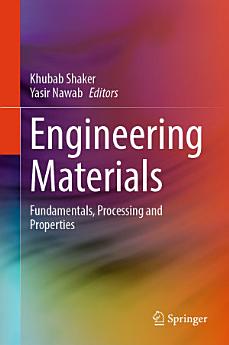Engineering Materials: Fundamentals, Processing and Properties
За е-книгава
За авторот
Khubab Shaker is a highly accomplished researcher and academic in the field of composite materials. He completed his doctoral studies at National Textile University in Faisalabad, Pakistan, in 2018. With an impressive track record, Dr. Shaker has established himself as one of the most productive researchers at National Textile University. He has authored 85 research papers with an impact factor of 220, that have garnered substantial recognition within the academic community. In addition, he has edited six books and contributed 26 chapters to various book publications. His expertise is further demonstrated through his participation in over 25 conference papers and keynote talks. Currently, he holds the esteemed position of Chairman of the Department of Materials at National Textile University. His research interests primarily revolve around natural fibres, biopolymers, and green composites. He is honored to be a fellow of the International Society of Development and Sustainability, based in Japan, highlighting his commitment to promoting sustainable development worldwide.
Yasir Nawab is a Professor at the National Textile University, Faisalabad, Pakistan. Currently, he is working as Dean School of Engineering & Technology and leading the Textile Composite Materials Research Group. His research areas are Composite Materials, 2D & 3D woven fabrics and Finite element analysis. He is the author of over 140 peer-reviewed journal articles, 5 books/book chapters and over 60 conference communications. He is the founding Director of National Center for Composite Materials. He received his Ph.D from the University of Nantes, France in the domain of composite materials in 2012, which was declared as Remarkable Ph.D in science & Technology in that year. In 2013, he did his postdoc from the ONERA (The French Aerospace lab) and University of Le Havre, France.






